
Director
At 91 years of age, Alexander Kluge is solidly regarded as a trailblazing figure in New German Cinema and the avant-garde. He remains active and curious about media, so it’s no wonder that he recently began experimenting with artificial intelligence. He has been exploring a particular programme developed in Munich for medical research, which he systematically strains in order to find his images at the farthest ends of the system's creative faculties. With these, Kluge plays in the same essayistic fashion beloved from his television work – historical footage and a plenitude of texts, comics, charts and cabaret. In short: facts and fictions freely intermingle.
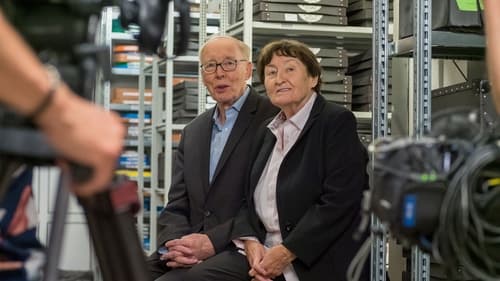
Alexander Kluge
From the 1950s onwards, Erika and Ulrich Gregor brought countless film historical milestones to Berlin and shaped cinema discourse in post-war Germany. A look at the life and work of the couple without whom Arsenal and the Forum wouldn’t exist.
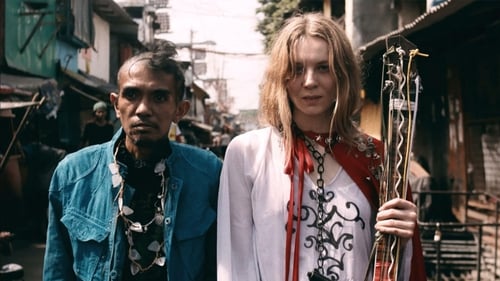
Producer
A reinvention of the Greek myth of Orpheus and Eurydice, set in contemporary Manila as a rock musical.

Writer
A reinvention of the Greek myth of Orpheus and Eurydice, set in contemporary Manila as a rock musical.

Director
A reinvention of the Greek myth of Orpheus and Eurydice, set in contemporary Manila as a rock musical.

Self (archive footage)
Born in Berlin in 1896, Lotte Eisner became famous for her passionate involvement in the world of both German and French cinema. In 1936, together with Henri Langlois, she founded the Cinémathèque Française with the goal of saving from destruction films, costumes, sets, posters, and other treasures of the 7th Art. A Jew exiled in Paris, she became a pillar of the capital's cultural scene, where she promoted German cinema.
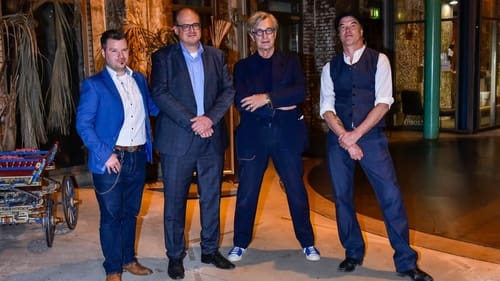
Self (archive footage)
Pioneiro do Novo Cinema Alemão, Wim Wenders é um dos mais importantes diretores do cinema contemporâneo. Marcando seu 75º aniversário, “Wim Wenders, Desperado” retrata o trabalho de um visionário que captou o zeitgeist de sua geração. O documentário aborda o processo artístico de um improvisador único, que vê cada filmagem como uma jornada rumo ao desconhecido. Com depoimentos inéditos de Francis Ford Coppola, Willem Dafoe, Patti Smith e Werner Herzog, o filme oferece um olhar exclusivo sobre a vida e a obra de um artista excepcional.

Director
Video #1 of Finite Rants, a series of eight visual essays commissioned by Fondazione Prada and curated by Luigi Alberto Cippini and Niccolò Gravina.

Producer
An old building in Venice hosts an exhibition. A visitor walks through empty rooms discovering a fictionalized architectural space that functions like an abandoned theatre set. Inspired by Alexander Kluge’s oeuvre, this exploration attempts to de-construct the subjective experience and liberate the cinematic energy from the horror vacui of the display.

Director
Documentary short about the stage play "Wessis in Weimar"

Screenplay
Sobre o circo, sobre a eletricidade - mas acima de tudo sobre a música Blue Moon, para a qual Elvis Presley emprestou sua voz.

Director
Sobre o circo, sobre a eletricidade - mas acima de tudo sobre a música Blue Moon, para a qual Elvis Presley emprestou sua voz.

Self
For over half a century, the filmmaker Edgar Reitz, one of the signatories of the Oberhausen Manifesto and a pioneer of epic film narration, has explored, as a practitioner and theoretician, the rules and limits of cinema, which he always seeks to break and extend in new ways. One example of his tireless search and research are the Geschichten vom Kübelkind, which he co-directed with Ula Stöckl in 1969/70, 22 absurdly funny, subversive and anarchistic short films of different lengths, which consciously oppose all conventions, with incredible success. The films remain unrivalled in their Dadaistic inventiveness.

Self
In conversations with his friends and colleagues, among them Bernd Upnmoor, Helmut Herbst, Alexander Kluge, Klaus Wyborny, Daniel Kothenschulte and Helge Schneider, Ulrike Pfeiffer takes us on a journey into the broad expanse of Nekes' cabinet of wonder and his cinematic works. At the same time, this documentary provides an insight into the history of experimental film in Germany.

Himself
In An Opera of the World, Malian scholar and filmmaker Manthia Diawara reflects upon the refugee crisis and the relationship between Europe and Africa. The film revolves around a 2008 performance of Bintou Were, a Sahel Opera, by Zé Manel Fortes with a libretto by Koulsy Lamko, in Bamako, around which Diawara builds a story about migration, interweaving interviews with documentary and archival footage. In the course of the film, one crosses into the world of opera from the tradition of sung wisdoms and sentiments, which has characterized West African culture for centuries. If opera is often understood as an über-European art form—the Gesamtkunstwerk invoked by Richard Wagner—Diawara chooses to meditate on its movement or migration as opposed to its expansion or totality. What happens when opera moves south, from Europe to Africa, just as so many people from that continent are moving north, in search of better lives?

Director
An opera film by Alexander Kluge

Himself
Anselm Kiefer is one of the most important painters of the present, Alexander Kluge's television interviews are legendary. Over several years, the two have met again and kept detailed discussions. With their youthful joy of associating, they talk about Kiefer's career and his way of working, about sources of inspiration and materials, about myths and of course history. Between the thematic blocks, Alexander Kluge switched cinematic miniatures, in which he spun common ideas and deepened individual aspects. A great dialogical artist portrait.

Director
Anselm Kiefer is one of the most important painters of the present, Alexander Kluge's television interviews are legendary. Over several years, the two have met again and kept detailed discussions. With their youthful joy of associating, they talk about Kiefer's career and his way of working, about sources of inspiration and materials, about myths and of course history. Between the thematic blocks, Alexander Kluge switched cinematic miniatures, in which he spun common ideas and deepened individual aspects. A great dialogical artist portrait.

Director

Director
In a timely precursor, this 40 minute talk sees Alexander Kluge and Joseph Vogl return to their customary roles. Kluge feigns the curious lay reader. He defers to the professional diviner of high and popular culture, Vogl. Together they make a sort of Dante and Vergil team, undaunted by the hellish difficulties in their pursuit of meaning and complexity.
And these are the questions they ask themselves: Moby Dick - Ahab. Who are they? Godzilla. How does it compare to MB? What is monstrous, what is monstrosity?

Himself
Alexander Kluge's 2012 Frankfurt lectures on poetics.

Director
Alexander Kluge's 2012 Frankfurt lectures on poetics.

Writer

Director

Director
In a conversation with Heiner Müller, Alexander Kluge asked him to say what kind of thing, animal, job, whatever... could Deutschland be. Heiner Müller answered: “just a pretty woman”.

Strolling through France (Roanne, Nice and Carcassonne) with some excursions abroad (Munich, Montreal, New York).

Director
Directed by Alexander Kluge

Director
Film by Alexander Kluge.

Director
Film by Kluge and Aust.

Director
Alexander Kluge's News from Ideological Antiquity begins with Russian filmmaker Sergei Eisenstein's ambitious but unrealized plan to combine Karl Marx's Capital and James Joyce's Ulysses. For over nine hours, the film expands in concentric circles as Kluge, his guests, interlocutors and monologists make associative links on a range of topics that starts from a filmic discussion of Eisenstein's notes.

Self (uncredited)

Director
The Poetic Power of Theory: Aristotle, Heidegger, Spinoza, Marx, Nietzsche, Kant ("What Does it Mean to Orient Oneself in Thinking?"). Seven examples taken from 200 television reportage programmes. "One must take that which is of significance outside of television and introduce it into this medium without compromise." This is particularly true of the gentle violence of theory.

Director

Director
People who do not have the patience or the opportunity to listen to all 86,000 operas that exist in the world need an opera guide. The opera guide is imaginary when it takes in the full force of the pain and extreme expression that are part of the utopia of opera.

Director

Director

Director
16 of Alexander Kluge's one-minute films.

Director
A short film by Alexander Kluge.

Director
A short by Alexander Kluge.

Director
A short film by Alexander Kluge.

Director
A short by Alexander Kluge.

Director
A short by Alexander Kluge.

Director
A short by Alexander Kluge.

Director
A short by Alexander Kluge.

Director
A short film by Alexander Kluge.

Director
A monkey reminisces about King Kong

Director
A reference to the song of the same name, which carries the motif of "La Paloma" (the dove) and can be traced back to an episode that occurred in 492 BC, before Darius' invasion of Greece, a time when the white dove had not yet been seen in Europe.

Writer
The woman in the battlefield.

Director
The woman in the battlefield.

Director

Director
Finale No. 1 in Bellini's Masterpiece Norma

Director
A talk with Alexander Kluge and Jean-Luc Godard.

Director
As indicated in the subtitle Tiehrmehlfabrikant Dr. Fred Eicke weiss Auswege, this work centres on the animal food producer Fred Eicke (a part played by Peter Berling). The title refers to The Corrosion of Character (translated into German as Der Flexible Mensch), a book from 1998 by the American sociologist Richard Sennett. In it, Sennett describes the effect of the ‘new’ flexible capitalism on society’s shifting system of norms and values.

Director

A portrait of Manfred Pichota, played by Peter Berling, tells about the period in which he was the Führer's bodyguard.

Director
A portrait of Manfred Pichota, played by Peter Berling, tells about the period in which he was the Führer's bodyguard.

Director
Short science fiction film, a companion piece to Kluge's Der Große Verhau and Willi Tobler und der Untergang der 6. Flotte.

Director
Wer immer hofft stirbt singend is a bagatelle bordering on the burlesque, in which Kluge combines (historical) visual material and nostalgic images of various disasters with very graphically elaborated title card texts. The somewhat awkward Mexican Banda music underlines the bittersweet character of the work.

Director
One minute of Rhine streams and fireworks speeded up, and some digital drawings between video clip and video art.

Director
His prose text "An Attempt at Love", published in 1962, can be classified in the prehistory of the Auschwitz trials and deals with the attempt by the camp supervisors to manipulate two imprisoned Jews to engage in sexual intercourse in order to test sterilization measures.

Director
A short about the German composer and royal bandmaster Joseph Martin Kraus, often nicknamed ‘the Swedish Mozart’. A young man is seen playing the piano in front of a grotesque video background showing a night storm. He brings Öfver Mozarts död in E flat mayor, a score from 1792 which Kraus dedicated to his great example, Mozart.

Director
A short by Alexander Kluge.

Director
A short film by Alexander Kluge.

Director
A short by Alexander Kluge.

Producer
No known information

Director
No known information

Director
Alexander Kluge's tribute to Soviet master Dziga Vertov, displaying a collage of stills from Vertov's work on the screen of a white round TV set to the sound of brass music and percussion.

Director
Short science fiction film with footage from Willi Tobler und der Untergang der 6. Flotte.

Director
At the beginning of the 19th century there is no Chicago. There was a fort that was set on fire by Indians shortly thereafter. Later, the turbulent expansion of a settlement began, which became a center for the immigrant workforce, traditional industry, the slaughterhouses (Bert Brecht) and, in 1941, armaments for war. The Windy City on Lake Michigan is the fastest changing city in the world. The 35mm Arriflex film time-lapse footage is annotated with classic techno cuts and information about the tunnels under Chicago, the slaughterhouses, organized crime, Sears & Roebuck catalogs and other peculiarities of this strange city.

Director
A short film by Alexander Kluge.

Director
The title of the interview is from a line in a poem written by an American about the battle of Ypern in World War I: “My rendezvous with Death took place in a trench.” Müller begins the interview by narrating how he prepared himself, both mentally and physically, for his throat operation to remove a cancer.

Self
A meditation on the first 100 years of German cinema, featuring some of its greatest directors.

Director
Since German Classicism, it has become customary to translate extreme, emotional events into a ballad, a popular form of song. This ‘Balladen Magazin’ brings Cossack lamentations, the horrors of the war in Chechnya, and the execution of the unfortunate Emperor Maximilian of Mexico, among others...

Since German Classicism, it has become customary to translate extreme, emotional events into a ballad, a popular form of song. This ‘Balladen Magazin’ brings Cossack lamentations, the horrors of the war in Chechnya, and the execution of the unfortunate Emperor Maximilian of Mexico, among others...

Director
In order to justify interpreting the Oresteia as a representation of the "birth of democracy" (P. Stein), one has to repress a lot, for example the sacrifice of Iphigenia or Elektra's feminist rebellion. The Oresteia represents an "Egyptian" material, situated between Europe and Asia, incomprehensible to both. That makes it interesting for a possible, currently necessary rapprochement between the two parts of the world. One would need, Müller says, to undertake a completely new translation, because in the existing ones the irrational elements have already been smoothed over.

Director
This "music magazine" is a montage of visually alienated historical film clips of tanks and soldiers (First and Second World War), pictorial reminiscences of Russian avant-garde art, and excerpts of interviews with Heiner Müller accompanied by heavy metal music (the "death & grind" music of the groups Abhorrence, Acrostichon, Toxaemia, and Disgrace).

Director
Heiner Müller was invited to a conference in Japan on the fate of opera in the 20th and 21st century. He talks about his flight over Siberia and his fascination with this "giant ridge" that he characterizes as the "Asian time preserve of Russia." This is followed by thoughts about the past, present and future of opera and theater. He thinks that in earlier times opera could be a vessel for utopia, but now it is like a fraudulent enterprise: "When everything has been said, the voices become soft and then the opera comes."

Director
Citing Nietzsche, Müller describes the motive of the philologist as "greed," "simply wanting to have everything, grasp everything, know everything." This "hunger" distinguishes the artist, but has become lost in modern art, which is so boring now because it has only "appetite."

Director

Director
Here Müller and Kluge explicitly address a theme that is latently present in many of their conversations: the relation of intellectuals to reigning political power. Given his many writings on Frederick the Great, it is not surprising that Müller begins the discussion with the “love-hate” relationship between the 18th Century Prussian King and the French Philosopher Voltaire. Moving to the 20th Century, the conversation then focuses for the most part on intellectuals and their relationship to totalitarian regimes. An initial sketch of an encounter between the Russian writer Maxim Gorky and Vladimir Lenin in the post-revolutionary Soviet Union segues into a treatment of the German writer Ernst Jünger in the Third Reich (1933-1945). Müller follows this up with remarks about the importance of Jünger for his own thinking as a writer before and after the founding of the German Democratic Republic.

Director
Kluge here presents a portrait of Friedrich the Great by means of quotations, film clips, historical images, and film documents. The program is a contribution to a public discussion about the role of the Prussian king in German and European history that unfolded after the transfer of the Hohenzollern sarcophagi in 1991. The excerpt of an interview with Heiner Müller lasts 2:50 minutes. Müller calls Friedrich a "murdered Mozart," the only intellectual among the German rulers, and a source of dramatic material. He also talks about his play Gundling. An excerpt from an interview between Günter Gaus and Hans Bentzien, the former culture minister of the GDR, deals with the rescue of the Friedrich monument on Unter den Linden after 1945.

Himself
Documentary about the twin sister Jutta and Gisela Schmidt. In the late sixties the two women rebelled against middle class society as if they gave vent to a new kind of art. They became active in the underground communist party KPD and showed a heart-felt interest in the colour red, the aesthetics of the revolution. Soon, though, the twins quit their experiments in Germany. They left their husbands and went to Rome, where they met the fabulously wealthy Paul Getty III, and soon things got really out of hand.

Director
In this conversation, taking place shortly after the German reunification, Alexander Kluge and Heiner Müller discuss historical developments from the perspective of playwright Heiner Müller's view on subjectivity. Among other things, they talk about the theoretical work of political philosopher Carl Schmitt, Russian literature, Müller's play "Mauser" and an artwork by Anselm Kiefer.

Director
At the time of the conversation Heiner Müller was the president of the Academy of Arts - East. At the beginning he describes his daily routine to Kluge. He is an unwilling president who has to lead an academy - which will soon be absorbed into a "European Artists Society" - at a time of upheaval. As he is describing the only functional and innovative part of the academy, the "Music Section" that trains master's students, he starts talking about how he almost became a master's student of Brecht. In retrospect he is glad that he missed this chance and escaped Brecht's powerful influence, which took away the individual creative space of his collaborators. Müller describes how he got by with various jobs during his application period and afterwards in 1951: book reviewer, translator of Stalinist songs. When Kluge asks about the basic concept of an academy, the discussion returns to its starting point: Müller claims that the academy is a space that is free from the state.

Director
Movie scenes, montages of images and text, as well as conversations between Alexander Kluge, playwright Heiner Müller and classicist Wilfried Stroh provide a multifaceted insight in the far-away world of Ancient Rome. The conversation with Müller revolves around Tacitus' representation of the Roman Empire around 112 AD. First, Müller reads passages from the historicist's annals that describe Tiberius' tragic death (37 AD). Kluge and Müller discuss the text's aesthetic qualities. Müller is interested in Tacitus for the aesthetic pleasures rather than out of historical curiosity. He describes Tacitus' style as "transition from chronicle to literature," which manifests in his "elliptical," sometimes laconic narration.

Director
Two-hour television documentary by Alexander Kluge and Meinhard Prill on the documentary filmmakers of the "Stuttgart school".

Director
"The metaphor is cleverer than the author" (Lichtenberg), a "screen," an "instrument for bundling" (Müller), because "everything changes so much" (Gertrude Stein) - Müller explicates these functions of figurative language with reference to the use of metaphors in Shakespeare. This use of metaphor corresponds to the acceleration of the Elizabethan age (the second half of the sixteenth century), the consolidation of which compels Shakespeare to use an allegorizing language in his last plays.

Director
In this interview Müller and Kluge explore the East German’s memories of the final days of the war. The session is introduced by a clip from the Russian film maker Sergei Parajanov’s 1961 film entitled The Ukranian Rhapsody. Here a soldier of the Red Army is writing a letter to his fiancee Oskana on the home front, describing to her his imagined vision of listening to Beethoven’s Moonlight Sonata in the middle of battle. “In the past I rarely listened to Beethoven,” he says, “if he had composed only the Moonlight Sonata, the war would have had to stop in front of it too.” The scene then is interrupted by the arrival of German tanks.

Director
In 1989, Heiner Müller staged an unabridged seven-and-a-half hour Hamlet, because in the process of German reunification "a leave-taking from the Hamlet principle in favor of the market economy" was taking place. In this interview, he elaborates on the parallels between the play and contemporary reality in terms of the plot and the characters (for example, Günter Schabowski as well as the problematic role of Fortinbras).

Director
This portrait of Heiner Müller on the occasion of his 60th birthday is devoted for the most part to having Müller recount events and memories from the first quarter of his life, starting with his birth on January 9, 1929 and closing with his immediate postwar experiences in the mid-1940's. This part memoire, part biographical sketch of his early life includes descriptions of his parents’ background and employment activities, the arrest and incarceration of his father in a concentration camp in 1933, Müller’s recollections of school life in Nazi Germany, Müller’s brief detention in an American POW camp at the end of the war and, upon release, his adventurous return to his home in the Soviet Zone in eastern Germany. These snapshots of his first 16 years also include anecdotes about Peter the Great and Andrei Platonov’s “Sluices of Epiphany” as well a meditation on a scene from Shakespeare’s Titus Andronicus.

Writer
Celebrated West German director Alexander Kluge presents this drama that strings together vignettes of events taken from everyday newspaper headlines. Germans are shown in their reactions to World War II, minorities, and the elderly. A side plot follows a meeting between former West German Chancellor Helmut Schmidt and East German leader Erich Honecker.

Director
Celebrated West German director Alexander Kluge presents this drama that strings together vignettes of events taken from everyday newspaper headlines. Germans are shown in their reactions to World War II, minorities, and the elderly. A side plot follows a meeting between former West German Chancellor Helmut Schmidt and East German leader Erich Honecker.

Writer
A poignant film essay about 'superfluous people' facing up to a moment of crisis in their lives.

Director
A poignant film essay about 'superfluous people' facing up to a moment of crisis in their lives.

Director
A short by Alexander Kluge.

Writer
The Cold War is peaking again in divided Germany in the early 1980s. How to deal with the upcoming nuclear annihilation shows this Alexander Kluge short.

Director
The Cold War is peaking again in divided Germany in the early 1980s. How to deal with the upcoming nuclear annihilation shows this Alexander Kluge short.
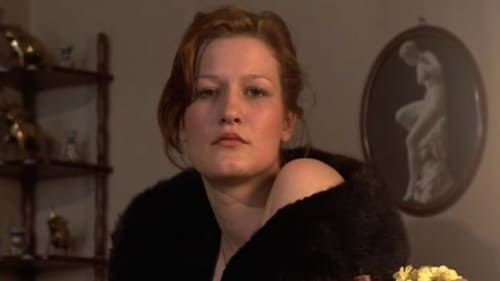
Writer
The emotion and feelings should not be confused with sentimentality. Emotion is ancient and more powerful than any artistic expression. The film observes young couples face difficulties while trying to move their love experiences clear decision making. A film full of ideas, details and associations, fictional scenes, documentary footage, archival materials and opera music.

Director
The emotion and feelings should not be confused with sentimentality. Emotion is ancient and more powerful than any artistic expression. The film observes young couples face difficulties while trying to move their love experiences clear decision making. A film full of ideas, details and associations, fictional scenes, documentary footage, archival materials and opera music.

Writer
The third episodical film, after Deutschland im Herbst and Der Kandidat, in which notable German film makers reflect on the state of their country.

Director
The third episodical film, after Deutschland im Herbst and Der Kandidat, in which notable German film makers reflect on the state of their country.
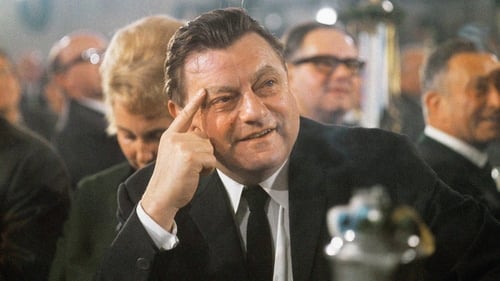
Writer
Made with an eye to the autumn of 1980 when the German parliamentary elections took place, The Candidate examines Germany’s history past and present and Franz Josef Strauß, the man who, as the CDU/CSU candidate, aspires to be elected to the most important political office in the land.

Director
Made with an eye to the autumn of 1980 when the German parliamentary elections took place, The Candidate examines Germany’s history past and present and Franz Josef Strauß, the man who, as the CDU/CSU candidate, aspires to be elected to the most important political office in the land.

Writer
Gabi Teichert, a history teacher, is unhappy with the way history is portrayed in textbooks and is looking for an alternative, more practical approach to 'uncovering' the past, quite literally digging with the spade and dissecting books with hammers and drills.

Director
Gabi Teichert, a history teacher, is unhappy with the way history is portrayed in textbooks and is looking for an alternative, more practical approach to 'uncovering' the past, quite literally digging with the spade and dissecting books with hammers and drills.
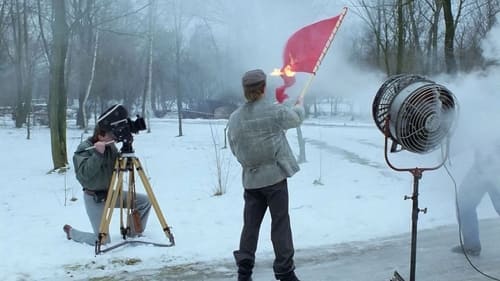
Screenplay
Germany in Autumn does not have a plot per se; it mixes documentary footage, along with standard movie scenes, to give the audience the mood of Germany during the late 1970s. The movie covers the two month time period during 1977 when a businessman was kidnapped, and later murdered, by the left-wing terrorists known as the RAF-Rote Armee Fraktion (Red Army Fraction). The businessman had been kidnapped in an effort to secure the release of the orginal leaders of the RAF, also known as the Baader-Meinhof gang. When the kidnapping effort and a plane hijacking effort failed, the three most prominent leaders of the RAF, Andreas Baader, Gudrun Ensslin, and Jan-Carl Raspe, all committed suicide in prison. It has become an article of faith within the left-wing community that these three were actually murdered by the state.

Director
Germany in Autumn does not have a plot per se; it mixes documentary footage, along with standard movie scenes, to give the audience the mood of Germany during the late 1970s. The movie covers the two month time period during 1977 when a businessman was kidnapped, and later murdered, by the left-wing terrorists known as the RAF-Rote Armee Fraktion (Red Army Fraction). The businessman had been kidnapped in an effort to secure the release of the orginal leaders of the RAF, also known as the Baader-Meinhof gang. When the kidnapping effort and a plane hijacking effort failed, the three most prominent leaders of the RAF, Andreas Baader, Gudrun Ensslin, and Jan-Carl Raspe, all committed suicide in prison. It has become an article of faith within the left-wing community that these three were actually murdered by the state.

Writer
Alexander Kluge documents the preparations for an exhibition on the Staufer dynasty.

Director
Alexander Kluge documents the preparations for an exhibition on the Staufer dynasty.

Writer
Alexander Kluge reflects on the medieval Staufer dynasty and draws a line from Emperor Barbarossa to Operation Barbarossa.

Director
Alexander Kluge reflects on the medieval Staufer dynasty and draws a line from Emperor Barbarossa to Operation Barbarossa.

Writer
The clownish security chief of a West German business is obsessed with protecting his factory from fancied and real breaches, especially from groups such as The Red Army Faction. Ferdinand's paranoia and methods can't be contained by his company. The sympathetically-drawn Ferdinand's ludicrous actions recall those of the cynical, disastrous axis between fascism and big business in 1930's Europe: satire of the rise of private security.

Director
The clownish security chief of a West German business is obsessed with protecting his factory from fancied and real breaches, especially from groups such as The Red Army Faction. Ferdinand's paranoia and methods can't be contained by his company. The sympathetically-drawn Ferdinand's ludicrous actions recall those of the cynical, disastrous axis between fascism and big business in 1930's Europe: satire of the rise of private security.

Writer
Combining fictional and documentary modes, Kluge's In Danger and Dire Distress... takes a critical stance toward Frankfurt's public sphere and urban redevelopment. Despite the serious formal and political concerns of the film, Kluge's heightened sense of the absurd safeguards a reserve of utopian optimism.

Director
Combining fictional and documentary modes, Kluge's In Danger and Dire Distress... takes a critical stance toward Frankfurt's public sphere and urban redevelopment. Despite the serious formal and political concerns of the film, Kluge's heightened sense of the absurd safeguards a reserve of utopian optimism.

Writer
Roswitha runs an illegal abortion clinic in Frankfurt to support her student husband and children. When she is forced to close her practice she delves into political and social activism.

Director
Roswitha runs an illegal abortion clinic in Frankfurt to support her student husband and children. When she is forced to close her practice she delves into political and social activism.
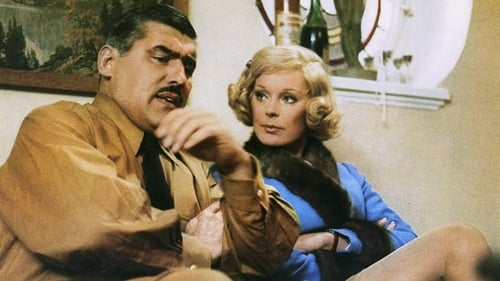
Writer
Two women during WW2 living in a Hunsrück village embark on a trip to Vienna.

Writer
Short by Alexander Kluge.

Director
Short by Alexander Kluge.

Writer
Willi endeavors to survive in a world where annihilistic galactic battles rage, by taking a job at the centre of power. But it's the wrong side that he takes in this civil war...

Director
Willi endeavors to survive in a world where annihilistic galactic battles rage, by taking a job at the centre of power. But it's the wrong side that he takes in this civil war...

Writer
Outer space in 2034 is run by greedy corporations in a rundown bureaucracy. Two astronauts, who are not very smart, make their way with shady dealings, smuggling and spaceship wrecking.

Director
Outer space in 2034 is run by greedy corporations in a rundown bureaucracy. Two astronauts, who are not very smart, make their way with shady dealings, smuggling and spaceship wrecking.

A 1970 TV discussion with Alexander Kluge.

Writer
The Indomitable Leni Peickert is a loose, half-hour sequel to Alexander Kluge's second feature film, Artists in the Big Top: Perplexed. This shorter work, seemingly assembled from leftover footage from the longer film, continues the story of the circus owner Leni Peickert after she first abandoned her idea of a radical circus in favor of a job in television. It opens where the previous film left off, at a TV station where Leni and her friends have gathered as employees, attempting to infiltrate the corporate establishment with their own revolutionary ideas. This radicalism is somewhat undercut by the way that Kluge deliberately shoots down the low-cut blouse of one of these young revolutionaries, the camera eyeing her cleavage and then panning down, to the text she's reading, and then back up again, finding her sexuality ultimately much more interesting than her radicalism.

Director
The Indomitable Leni Peickert is a loose, half-hour sequel to Alexander Kluge's second feature film, Artists in the Big Top: Perplexed. This shorter work, seemingly assembled from leftover footage from the longer film, continues the story of the circus owner Leni Peickert after she first abandoned her idea of a radical circus in favor of a job in television. It opens where the previous film left off, at a TV station where Leni and her friends have gathered as employees, attempting to infiltrate the corporate establishment with their own revolutionary ideas. This radicalism is somewhat undercut by the way that Kluge deliberately shoots down the low-cut blouse of one of these young revolutionaries, the camera eyeing her cleavage and then panning down, to the text she's reading, and then back up again, finding her sexuality ultimately much more interesting than her radicalism.

Producer

Writer
Alexander Kluge shoots a documentary short about the visit of his father to Munich.

Director
Alexander Kluge shoots a documentary short about the visit of his father to Munich.

Producer
Como seu pai antes dela, a dona de circo Leni Peickert (Hannelore Hoger) também quer levar o desempenho artístico a seu ponto máximo. Ao mesmo tempo, seu ideal é a naturalidade. Ela quer mudar o circo, mas suas inovações levam a empresa à bancarrota. “Se o capitalista faz aquilo de que gosta,/ e não aquilo que lhe traz vantagem,/ Não recebe apoio de ninguém”.
Revigorada, Leni Peickert busca uma segunda chance, agora na televisão comercial

Writer
Como seu pai antes dela, a dona de circo Leni Peickert (Hannelore Hoger) também quer levar o desempenho artístico a seu ponto máximo. Ao mesmo tempo, seu ideal é a naturalidade. Ela quer mudar o circo, mas suas inovações levam a empresa à bancarrota. “Se o capitalista faz aquilo de que gosta,/ e não aquilo que lhe traz vantagem,/ Não recebe apoio de ninguém”.
Revigorada, Leni Peickert busca uma segunda chance, agora na televisão comercial

Director
Como seu pai antes dela, a dona de circo Leni Peickert (Hannelore Hoger) também quer levar o desempenho artístico a seu ponto máximo. Ao mesmo tempo, seu ideal é a naturalidade. Ela quer mudar o circo, mas suas inovações levam a empresa à bancarrota. “Se o capitalista faz aquilo de que gosta,/ e não aquilo que lhe traz vantagem,/ Não recebe apoio de ninguém”.
Revigorada, Leni Peickert busca uma segunda chance, agora na televisão comercial

Documentary by Wilhelm Roth about the state of affairs of the Young German Cinema.

Writer
Kluge’s short-film starring his sister/muse Alexandra.

Director
Kluge’s short-film starring his sister/muse Alexandra.

Writer

Director

Editor
A new version of Nipp and Tuck (Del Ruth / Sennett, 1923)

Director
A new version of Nipp and Tuck (Del Ruth / Sennett, 1923)

Producer
Uma jovem, Anita G., rouba um pulôver para se aquecer. Cumprida a pena, ela faz várias tentativas de começar vida nova. Depois de uma fuga em ziguezague, vai parar de novo na cadeia. Os nazistas tinham levado seus pais. Ela vem do Leste e agora passa frio no Oeste. Três Alemanhas. Prêmio Especial do Júri do Festival de Veneza.

Writer
Uma jovem, Anita G., rouba um pulôver para se aquecer. Cumprida a pena, ela faz várias tentativas de começar vida nova. Depois de uma fuga em ziguezague, vai parar de novo na cadeia. Os nazistas tinham levado seus pais. Ela vem do Leste e agora passa frio no Oeste. Três Alemanhas. Prêmio Especial do Júri do Festival de Veneza.

Director
Uma jovem, Anita G., rouba um pulôver para se aquecer. Cumprida a pena, ela faz várias tentativas de começar vida nova. Depois de uma fuga em ziguezague, vai parar de novo na cadeia. Os nazistas tinham levado seus pais. Ela vem do Leste e agora passa frio no Oeste. Três Alemanhas. Prêmio Especial do Júri do Festival de Veneza.

Himself
Documentary about the current state of German cinema. Produced for German television.

Writer
Early Alexander Kluge short film that follows the career of a German policeman from World War I into the 1960s.

Director
Early Alexander Kluge short film that follows the career of a German policeman from World War I into the 1960s.

Director
The story of a revolution in a Caribbean insular state.

Writer
The story of a revolution in a Caribbean insular state.

Writer
Documentary short by Alexander Kluge about the role of teachers in history.

Director
Documentary short by Alexander Kluge about the role of teachers in history.

Producer
In his experimental short film "Brutalität in Stein" (Brutality in Stone), Alexander Kluge demonstrates how Nazi architecture used dimensions of inhuman and super-human scale to bolster the regime's politics of the same kind. Shots of huge neo-classical architectural structures from the Nazi period are confronted with equally anti-human national-socialist language as a voice-over.

Writer
In his experimental short film "Brutalität in Stein" (Brutality in Stone), Alexander Kluge demonstrates how Nazi architecture used dimensions of inhuman and super-human scale to bolster the regime's politics of the same kind. Shots of huge neo-classical architectural structures from the Nazi period are confronted with equally anti-human national-socialist language as a voice-over.

Director
In his experimental short film "Brutalität in Stein" (Brutality in Stone), Alexander Kluge demonstrates how Nazi architecture used dimensions of inhuman and super-human scale to bolster the regime's politics of the same kind. Shots of huge neo-classical architectural structures from the Nazi period are confronted with equally anti-human national-socialist language as a voice-over.

Writer
No known information

Director
No known information

Producer

Director

Director
Early short by Alexander Kluge.
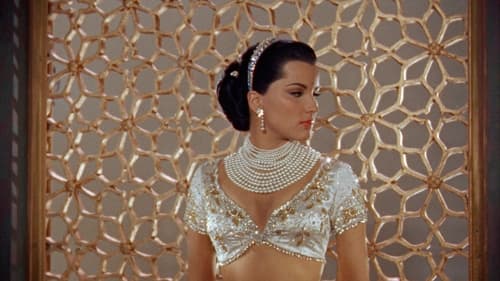
Assistant Director
Seetha and Harold Berger are rescued from the desert by a caravan and brought to a small village. However, the greedy owner of the house where they are lodged betrays the law of hospitality and reveals their location to Prince Ramigani. The couple tries to escape but is hunted and captured by Ramigani and his men. Meanwhile Irene Rhode and her husband Walter Rhode suspect that Maharaja Chandra is not telling the truth about Harold's destiny. The conspirator Ramigani forces Seetha to accept to get married with Chandra to provoke the wrath of the priests and get the alliance of Prince Padhu and his army. In the meantime, Harold succeeds in escaping from the dungeon and seeks out Seetha to save her.
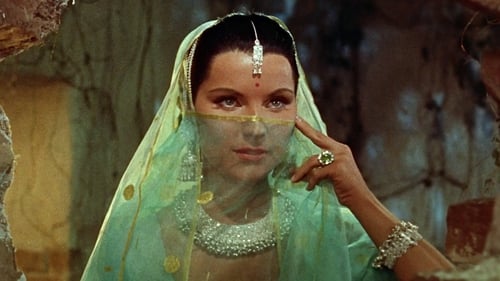
Assistant Director
In Eschnapur, a German architect saves the life of the Maharajah's favorite temple dancer and becomes Maharajah's friend but their friendship is tested when the architect and the dancer fall in-love, triggering the Maharajah's vengeful ire.

Director
Directed by Alexander Kluge

Self
The heart of the legs.

Director
The central topic of the interview is the ancient concept of a necessary balance between the dead and the living, which also assumes the notion of a constant potential for force in the world. Müller and Kluge examine this mythical conception of life with reference to personal, historical, and political examples like the father-daughter relationship (Agamemnon and/or Müller himself), East Germans' hopes of finding a place in capitalism, or violence in the middle ages and in the modern period.

Director

Director
A news magazine program on important aspects of the history of postrevolutionary Cuba, consisting of two documentary film sequences about Castro and two interview sequences with Heiner Müller. Castro speaks about his experiences in the revolution and about Che Guevara; he has himself filmed during the furnishing of a simple house. Heiner Müller, smoking, laments the decline in the quality of the "Davidoff" cigar following the American economic boycott against Cuba.

Director
Quoting from historian Tacitus' Annals, Alexander Kluge and Heiner Müller delve into the Roman Iron Age, talk about the modern style of Tacitus' prose, and debate borderline cases of legally sanctioned injustice. After Müller reads a passage about Tiberius' death (37 AD) and his successor Caligula Caesar, Kluge and Müller discuss Tacitus' conception of "history's highest function" as a teacher of virtues and admonisher of "evil words and deeds".

Director

Director
On Love’s Struggle through the Millennia. A chat between Alexander Kluge and Miriam Hansen through the prism of Griffith's INTOLERANCE.

Director
A film that researches multiple language-specific arguments, through twenty elaborative examples.


































































































